- Learning time
- 20 minutes
- First play time
- 100 minutes
Free Ride
Designed by: Friedemann Friese
Free Ride is a train game that crosses the innocent joy of route-building and train-riding with the slightly less innocent joy of capitalism, as players pay for the privilege of using each other’s track and try to serve the most cities in Europe.
The board shows the continent itself with the cities and potential train links that will – eventually – connect them. Free Ride has a quirkiness to it that starts with both the geography – being familiar with mainland Europe helps – and how you get your routes, which is from an array of columns containing three city cards. You can take the top two cards or the bottom two place your train on the board matching the highest city card in the column: you now have to get your train to the other card to complete the route. Only by completing routes can you claim the city cards (as points) and take a new route!
Each player takes one of three possible actions on a turn. You begin with some tracks and you can use them to build. When you build, you lay track connecting your network to new cities, and place an ownership marker on it, to show this link belongs to you. You can build exactly two links (or one, if the link is an expensive bridge or tunnel connection). Whenever you take the build action, you can optionally spend a coin to take five more track pieces into your personal supply.
Your second option is to take five track for free. This is great as it doesn’t cost you a coin, but it does cost you a turn: you can’t build if you take track for free.
Your final option is to ride the train. This means moving your train along your own track, up to two cities on a turn. If you stop at, or pass through the destination city for your current route, you flip the city cards face down and can now start a new route. Taking a route doesn’t cost you anything, but your train must be in the starting city for you to take it.
But of course all this track belongs to different players, and how do you get your train to, say, Athens, if others have blocked the way with their own track? The answer is nationalisation. When you ride the train you’re free to use other player’s links, as long as you pay them a coin for any link you use. Whenever this happens, the ownership marker comes off the link and it’s now free for everyone to use. So as the board fills up with track, it also slowly evolves from a privately-owned model into a shared one, with everyone free to travel along the increasing number of links that nobody owns!
The city cards come in three decks – each deck has one card for each city. When the first deck is exhausted, players can have two active routes instead of one. When the second deck is exhausted, riding the train can take you over three cities instead of two. And when the final deck is exhausted, the end-game is triggered: players can keep taking as many turns as they want but if anyone drops out whenever they would have had a turn, they get a coin instead. This can be critical, because…
Each unique city in your stash of city cards is worth 5points. Any duplicates are worth 2points. And coins are worth 3points!
The guru's verdict
-
Take That!
Take That!
No direct combat, but players can build routes to deliberately extort money from each other, and even take routes in a similarly evil-minded fashion.
-
Fidget Factor!
Fidget Factor!
Low with regards to the actions you take - there's only three - but moderately loaded with pauses for players to study the route possibilities and geography of the cities.
-
Brain Burn!
Brain Burn!
The rules really won't make anyone sweat, but the synapse-cinders will arise from figuring out your best moves within the frame they provide.
-
Again Again!
Again Again!
Randomness assured from the (shuffled) city cards and player input. If it's not the game with the most in-built variety, it certainly offers plenty of replayability.

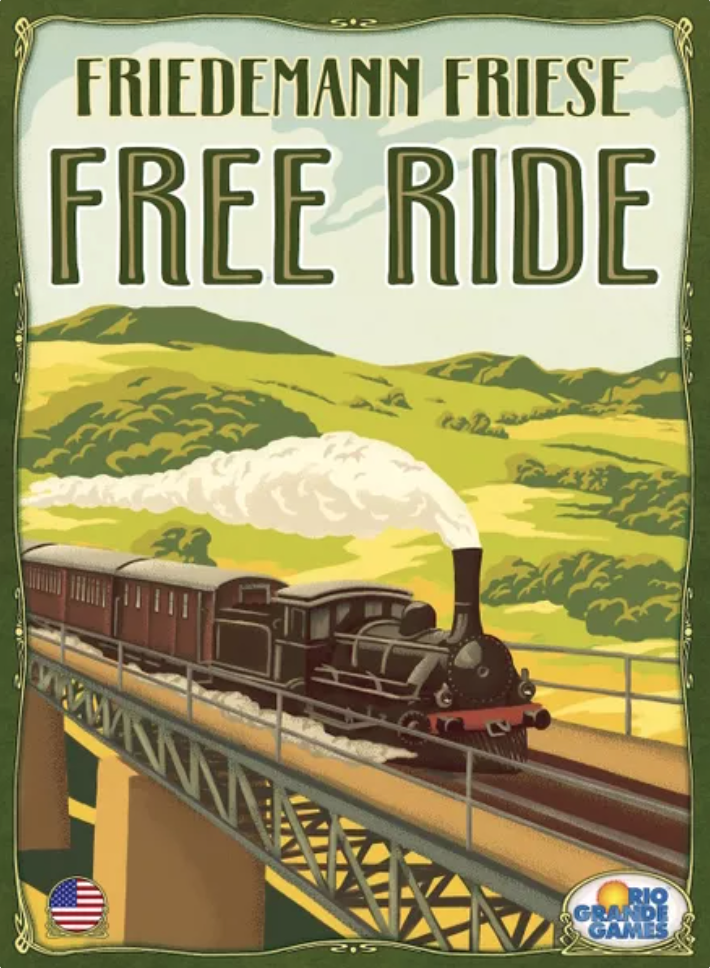
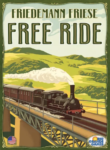
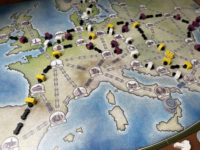
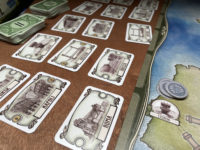
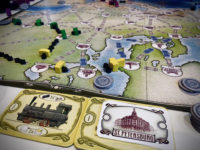
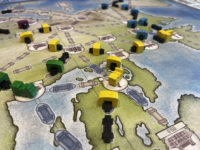


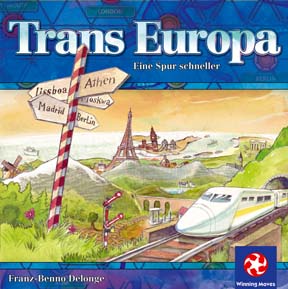
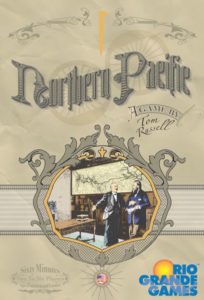
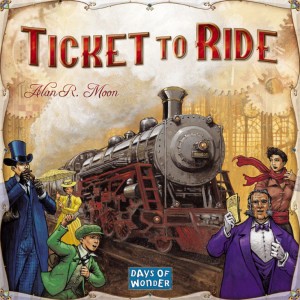
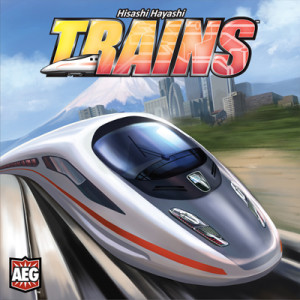
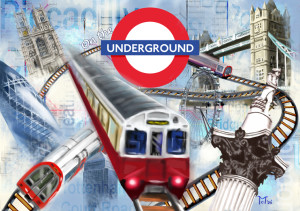
Sam says
Free Ride is great in some ways, but feels slightly compromised in others. The rules are pretty simple, and there's satisfaction to be had from building your links and nabbing conveniently-located routes close to your train - often before someone else can get there. It's not directly interactive but there's enough passive aggression here to make it feel spicy: do I build my own track over two turns, or pay a coin to use your track and complete the job in one? Coins are handy. Coins are points. Clever tactical play is the order of the day here, but there's luck too, particularly in where and when routes pop up, so it might be a good leveller for families. The compromises are some players getting easy routes and others potentially caught in a loop of poor options, purely due to bad luck. It can also quite tricky to 'read' all the potential the routes from the columns of cards instantly map out how close they are to each other on the board (we use dice as markers) . It's not enough to make Free Ride a bad game, but it does feel like some colour-coding of the map would have made things easier. Overall though, a fun one, with light rules but telling decisions.